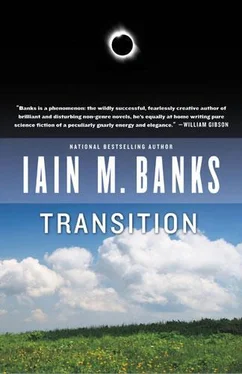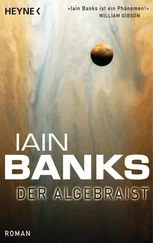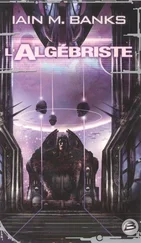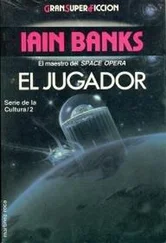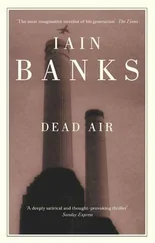
For Alastair and Emily, and in memory of Bec
With thanks to Adèle, Mic, Richard, Les, Gary and Zoe
Apparently I am what is known as an Unreliable Narrator, though of course if you believe everything you’re told you deserve whatever you get. It is, believe me, more than a little amazing-and entirely unprecedented-that you are reading these words at all. Have you ever seen a seismograph? You know: one of those terribly delicate and sensitive things with a long spideryfingered pen that inscribes a line on a roll of paper being moved beneath it, to record earth tremors.
Imagine that one of those is sailing serenely along, recording nothing of note, drawing a straight and steady black line, registering just calmness and quiet both beneath your feet and all around the world, and then it suddenly starts to write in flowing copperplate, the paper zipping back and forth beneath it to accommodate its smoothly swirling calligraphy. (It might write: “Apparently I am what is known as an Unreliable Narrator…”)
That is how unlikely it is that I am writing this and anybody is reading it, trust me.
Time, place. Necessary, I suppose, though in the circumstances insufficient. However, we must begin somewhere and somewhen, so let me start with Mrs Mulverhill and record that, by your reckoning, I first encountered her near the beginning of that golden age which nobody noticed was happening at the time; I mean the long decade between the fall of the Wall and the fall of the Towers.
If you wish to be pedantically exact about it, those retrospectively blessed dozen years lasted from the chilly, fevered Central European night of November 9th, 1989 to that bright morning on the Eastern Seaboard of America of September 11th, 2001. One event symbolised the lifted threat of a worldwide nuclear holocaust, something which had been hanging over humanity for nearly forty years, and so ended an age of idiocy. The other ushered in a new one.
The wall’s fall was not spectacular. It was night and all you saw on television was a bunch of leather-jacketed Berliners attacking reinforced concrete – mostly with hammers, rather ineffectually. Nobody died. A lot of people got drunk and stoned – and laid, no doubt. The wall itself was not a striking structure, and not even very tall or especially forbidding; the real obstacle had always been the barren, sandy killing ground of mines, dog runs and razor wire behind it.
The vertical barrier was always more symbolic than anything else; a delineation, so the fact that none of the crowds of cheerful vandals scrabbling for a perch on it could do much to destroy it without access to heavy equipment was irrelevant; what mattered was that they were clambering all over this famously divisive, allegedly defensive symbol without getting machine-gunned. However, as the expression of a sudden outburst of hope and optimism and an embracing of change, one could ask for no more, I suppose. The al-Qaida attack on the USA – well, given that a nation was invaded and occupied using this as an excuse, and that this was done in the name of democracy, let’s be both nationalistic and democratic about it: the Saudi Arabian attack on the USA -could hardly have offered a greater contrast.
Slung between these two wide-reaching levellings, the intervening years held civilisation happily if ignorantly scooped, as in a hammock.
Sometime about the centre of that sweet trough, Mrs M and I became lost to each other. We met again, then parted again for the final time just before the third Fall, the fall of Wall Street and the City, the fall of the banks, the fall of the Markets, beginning on September 15th, 2008.
Perhaps we all find such coincident place marks in the books of our lives reassuring.
Still, it seems to me that such congruencies, while useful in fixing what one might call one’s personal eras within our shared history, are effectively meaningless. Lying here, during all this time after my own small fall, it has become my conviction that things mean pretty much what we want them to mean. We’ll pluck significance from the least consequential happenstance if it suits us and happily ignore the most flagrantly obvious symmetry between separate aspects of our lives if it threatens some cherished prejudice or cosily comforting belief; we are blindest to precisely whatever might be most illuminating. Mrs Mulverhill herself said that, I think. Or it might have been Madame d’Ortolan – I get the two confused sometimes.
I am getting a little ahead of myself, so, in the light of the above, let us embrace rather than resist this effect.
You may, even as we begin, wish to know how my part in this ends.
So let me tell you.
This is how it ends: he comes into my room. He is dressed in black and wearing gloves. It is dark in here, just a night light on, but he can identify me, lying on the hospital bed, propped up at a slight angle, one or two remaining tubes and wires attaching me to various pieces of medical equipment. He ignores these; the nurse who would hear any alarm is lying trussed and taped down the hall, the monitor in front of him switched off. The man shuts the door, darkening the room still further. He walks quietly to my bedside, though I ought to be unlikely to wake as I am sedated, lightly drugged to aid a good night’s sleep. He looks at my bed. Even in the dim light he can see that it is tightly made; I am constricted within this envelope of sheets and blanket. Reassured by this confinement, he takes the spare pillow from the side of my head and places it – gently at first – over my face, then quickly bears down on me, forcing his hands down on either side of my head, pinning my arms under the covers with his elbows, placing most of his weight on his arms and his chest, his feet rising from the floor until only the tips of his shoes are still in contact with it.
I don’t even struggle at first. When I do he simply smiles. My feeble attempts to bring my hands up and to use my legs to kick myself free come to nothing. Wound amongst these sheets, even a fit man would have stood little chance of fighting his way from beneath such suffocating weight. Finally, in one last hopeless convulsion, I try to arch my back. He rides this throe easily and in a moment or two I fall back, and all movement ceases.
He is no fool; he has anticipated that I might merely be playing dead.
So he lies quite calmly on me for a while, as unmoving as I, checking his watch now and again as the minutes tick by, to make sure I am gone.
I hope you’re happy. An ending, and we have barely even begun yet! So we shall begin, first with something that in a sense has yet to happen.
It begins on a train, the highest train in the world, between China and Tibet. It begins with a man in a cheap brown business suit walking from one swaying carriage to another, his gait a little unsteady as he holds a small oxygen cylinder in one hand and an automatic handgun in the other. He steps onto the sliding metal plates that separate the carriages, the corrugated collar linking the passenger cars flexing and wheezing around him like a gigantic version of the ribbed tube connecting the oxygen cylinder and the transparent mask round his nose and mouth. Inside the mask, he finds himself smiling nervously.
The train rattles and jiggles around him, moving ponderously up and down and side to side, throwing him briefly against the ribs of the connector. Perhaps a place where the permafrost has proved less than permanent; he has heard that there have been problems. He steadies himself, rebalancing as the train straightens and resumes its smooth progress. He sticks the oxygen cylinder under one arm and uses his free hand to straighten his tie.
Читать дальше
